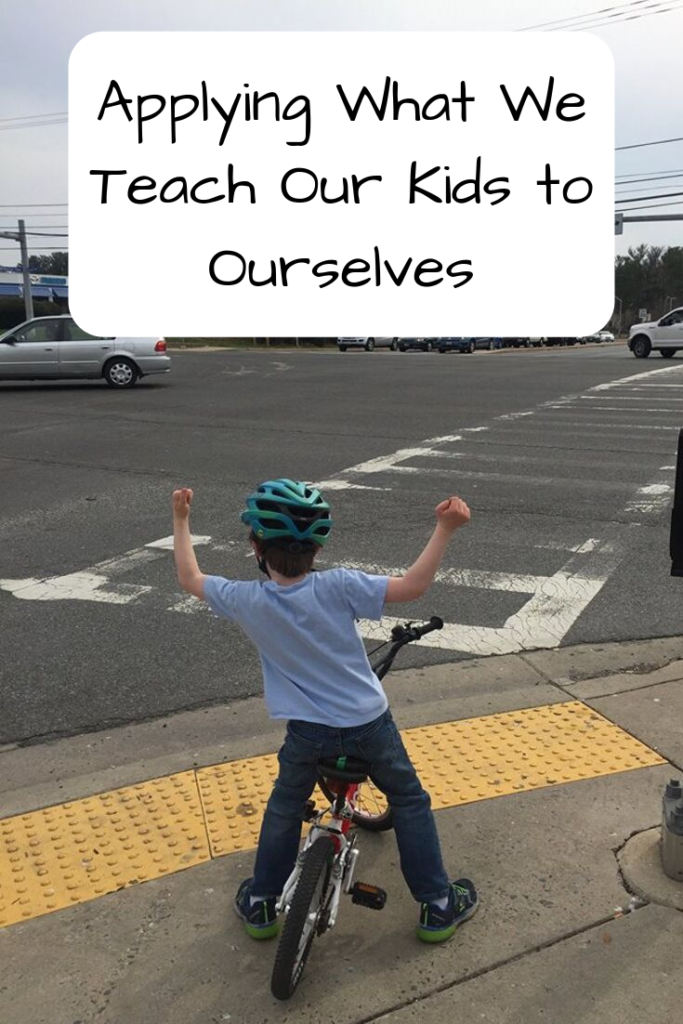
“Mama, [kid’s classmate] told me he was stronger than me,” said my five year old, nicknamed Sprout. “But I’m faster than him.”
“Well, you can tell him that you’re faster than him,” I responded, then immediately regretted it. “Actually, no. That wouldn’t be a good thing to say.” One, I had no idea if my kid was actually faster than the other kid. Two and more importantly, starting a comparison war was going to lead to nowhere good very quickly.
What would be a good way to respond? None of us likes being compared to someone else and found wanting. That’s the sort of thing that feeds awful voices in our head about how terrible we are. I understood Sprout’s frustration but didn’t want to feed those flames in him or his classmate.
After a good, long pause, I finally said, “Instead, you can say that everyone has different strengths and challenges.” This was familiar ground for him. We’ve talked in the past how some things that are easy for some people, like writing for me, are very difficult for others, like my husband. At the same time, my husband can find his way around blindfolded while I get lost with a GPS. I followed it up with the point that none of this means that any one person is better or worse than another. We wrapped up the conversation and I heard nothing more of it, so it sounds like that kindergarten drama worked out well enough.
But what it would look like if I consistently followed my own advice to him? Perhaps I would treat more people with deeper respect, pushing back against those snap judgments that come so easily. Perhaps I could see them first for their strengths instead of focusing on their weaknesses, halting that constant drumbeat of wishing they would “do better.” Perhaps I could quiet the voices in my own head that tell me I’m not strong enough, good enough, [fill in the blank] here enough.
What if we all took the advice we gave to our kids? The admonition to share, be kind, consider others’ point of view, not give into social pressure, only touch people who want to be touched? The idea of everything I need to know I learned in kindergarten is cliche, but cliches often come about because they’re true. Our kids truly do see what we do more than what we say. If I tell my son to respect the diversity of people’s strengths and differences, but spend all my time critizing others and myself, what I say will never sink in. Even if I say and do everything “perfectly,” he’ll still pick up messages that glorify power and selfishness from our surrounding society. Truly teaching our kids requires both individual and collective action.
So the next time I give my son a piece of guidance, I’m going to think about how to live it in my own life and society at large. Won’t you join me? Perhaps if we all try, we can make the world a kinder place.
For more thoughts on kindness, follow us on Facebook!